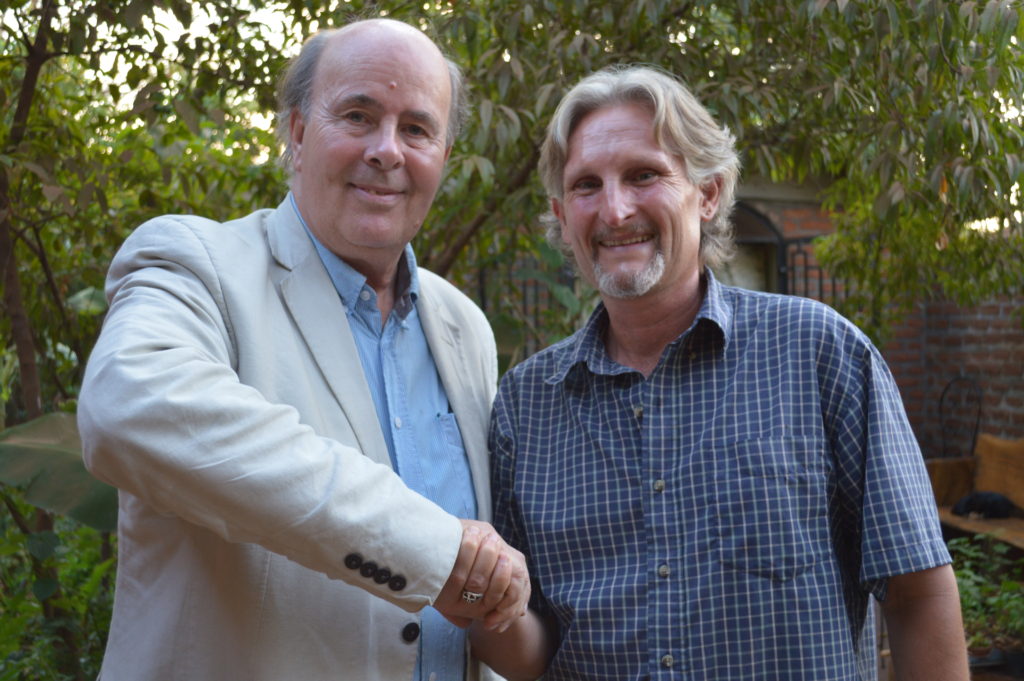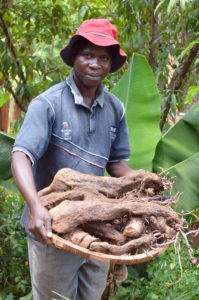
Never Ending Food was honored to host a visit from John Vidal, author and former Environmental Editor for the Pulitzer prize-winning Guardian Newspaper in the UK. Mr. Vidal joined the newspaper in 1995, and has authored numerous articles on global environmental and agricultural issues over the years. He is also the author of ‘McLibel: Burger Culture on Trial‘, where Mr. Vidal spent two and a half years covering one of Britain’s longest-running trials between McDonald’s fast food chain against 5 members of London Greenpeace.

Mr. Vidal visiting several countries in southern Africa, covering the issues surrounding the region’s current challenges of drought, food insecurity, and malnutrition. During his visit to Never Ending Food, we were able to demonstrate that many locally-available and low-cost solutions exist for bringing an end to chronic ‘hungry seasons’, famine, nutritional ‘stunting’, and even susceptibility to climate change. Never Ending Food grows nearly 200 different foods on a year-round, seasonal, and perennial basis. On the day of Mr. Vidal’s visit, Never Ending Food‘s Permaculture Manager, Peter Kaniye, dug up this local yam (pictured) as an example of foods that can be available to all Malawian farmers who choose to diversify their nutritional options. This yam weighed in at 21.8 kgs and was dug out of the ground just as people are beginning to complain about hunger, and as we are seeing countries such as the United States spending millions of dollars on ‘humanitarian food aid’.
As a result of his visit to Malawi, Mr. Vidal authored the Guardian article ‘I was so hungry I ate water lilies’: southern Africa’s food crisis in a dozen dishes. In this article he quotes us as saying: “There is absolutely no reason for these food crises. The problem is that everyone is focused on growing and eating maize. Malawi has spent 60 years trying to get this Central American food to grow in Africa, and there has been a deliberate stigmatisation of African food.”
